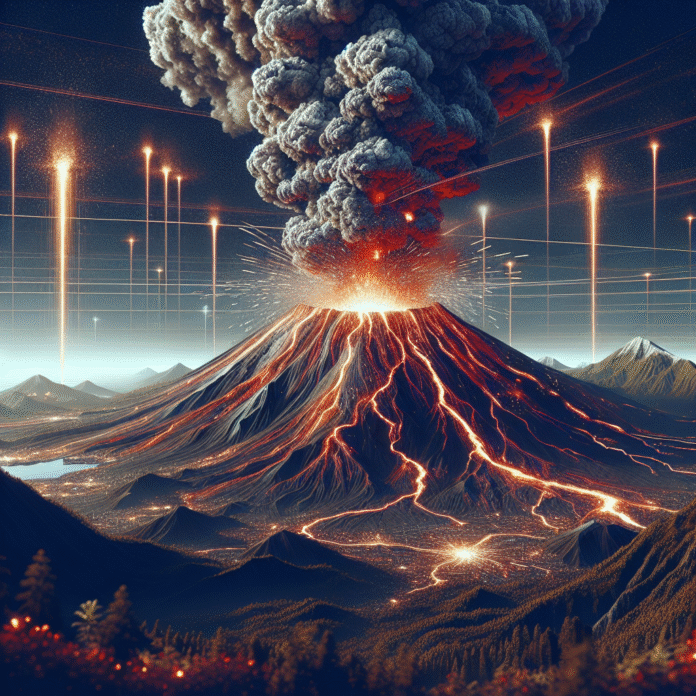Volcanic Eruption at Sakurajima Sends Ash Cloud into Sky
Japan’s Sakurajima Volcano Erupts, Sending Ash Cloud 3km High
In a dramatic turn of events, Japan’s renowned Sakurajima Volcano erupted recently, producing an impressive ash cloud that soared approximately 3 kilometers into the atmosphere. This eruption follows a series of earthquakes that have been shaking the region in the days leading up to the event, raising concerns among local residents and authorities alike.
Background on Sakurajima
Sakurajima, located on the southern island of Kyushu, is one of Japan’s most active volcanoes and has been under constant observation due to its frequent eruptions. The volcano, which is part of the Aso volcanic group, has a long history of explosive activity, with its last major eruption occurring in 1914. Since then, it has erupted numerous times, making it a focal point for volcanologists studying volcanic activity and its implications for local populations.
Recent Seismic Activity
Prior to the eruption, the area experienced a series of earthquakes, which scientists believe may have been linked to the magma movement beneath the volcano. This seismic activity often serves as a precursor to volcanic eruptions, prompting local authorities to remain vigilant. The Japan Meteorological Agency (JMA) had issued warnings for residents, advising them to stay alert and prepared for potential evacuations.
Impact on Local Communities
The eruption has immediate consequences for nearby towns, with ashfall reported in several areas. Residents are advised to wear masks and stay indoors to avoid inhaling volcanic ash, which can pose health risks. Additionally, local schools have been closed, and transportation services disrupted as cleanup efforts begin. The local government is mobilizing resources to assist those affected and to monitor the volcano’s activity closely.
Scientific Monitoring and Future Outlook
Scientists at the JMA and various research institutions continue to monitor Sakurajima’s activity using advanced technology, including seismic sensors, satellite imagery, and aerial surveys. These efforts aim to predict future eruptions and provide timely warnings to minimize risk to the population.
Global Context of Volcanic Activity
This eruption at Sakurajima is part of a broader pattern of increased volcanic activity observed globally. In recent years, several volcanoes across the world have shown heightened activity, prompting discussions about volcanic hazards and the need for improved early warning systems. As climate change continues to impact geological processes, understanding the interactions between volcanic activity and environmental changes becomes increasingly important.
As the situation develops in Japan, authorities remain on high alert, ready to respond to any further volcanic activity. Residents are urged to stay informed through official channels and to heed any warnings issued by emergency services.

